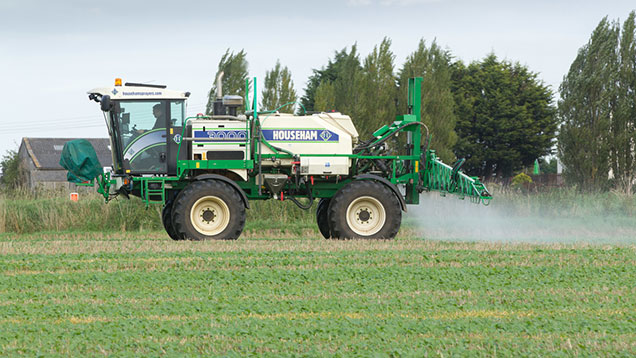New pesticide labelling rules could see loss of cheaper imports
 © Tim Scrivener
© Tim Scrivener New pesticide labelling rules introduced earlier this month will result in confusion and lead to farmers missing out on cheaper products, according to distributors.
From 1 October, new rules came into force for parallel imports of pesticides into the UK, requiring extra labelling.
Parallel imports are those that are manufactured by the owners of brands already approved and on the market in the UK, but sourced from other distributors in the EU.
See also: Insecticide gains emergency approval for oilseed rape
However, the new legislation means parallel imports must carry the original batch number and individual Ministerially Approved Pesticide Product (Mapp) number. Mapp numbers are given to all approved products.
Tom O’Mahony, managing director of Clayton Plant Protection, which imports parallel products, says individual Mapp numbers for each source country will mean multiple numbers for the same product. “This will lead to confusion, complexity and cost.”
Of greater concern to importers is the requirement to print original batch numbers. This will enable the manufacturer to identify who in Europe supplied the product, and if they choose to, frustrate future supplies, he says.
“UK farmers are already struggling with low prices of wheat and oilseed rape, a drop in basic payments, increased legislation and increased input costs,” says Mr O’Mahony.
“Surely farmers need the right to purchase cheaper inputs where they can, providing these inputs are of the highest quality and are proven to be identical to branded products?
“The new legislation makes life more difficult and, in my view, will not stop companies which do not adhere to the rules and bring in imitation, poor-quality material from dubious manufacturers, often outside the EU,” he says.
Graham Dickinson, crop protection director for national distributor Frontier, says it is important to have a healthy parallel import sector.
“Parallel products are a useful sector of the market that helps with continuity of supply when primary suppliers can’t supply in season. We deal with only legitimate companies with legitimate products, however.”
Mr Dickinson says the differing Mapp numbers for the same product will create confusion and major issues with farm management programmes such as GateKeeper.
“In my view it could be perceived to be anti-competitive. Nor can I see it helping to expose the illegal suppliers, which will carry on as before.”

